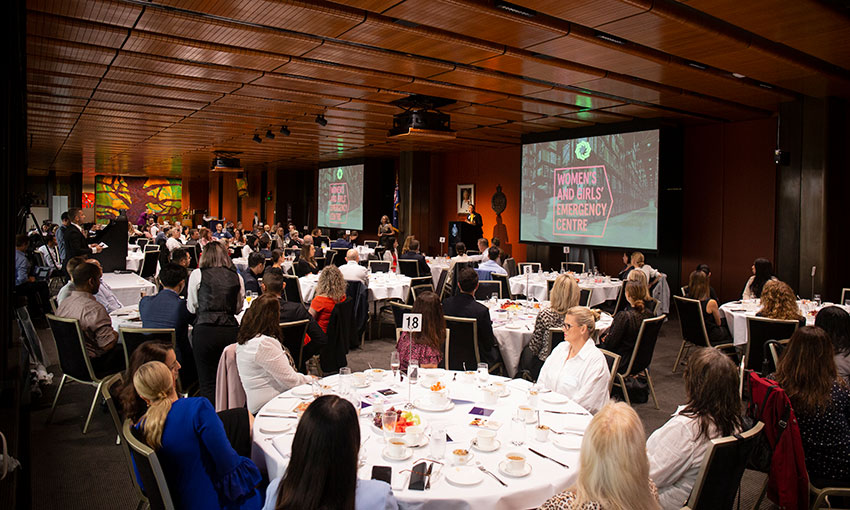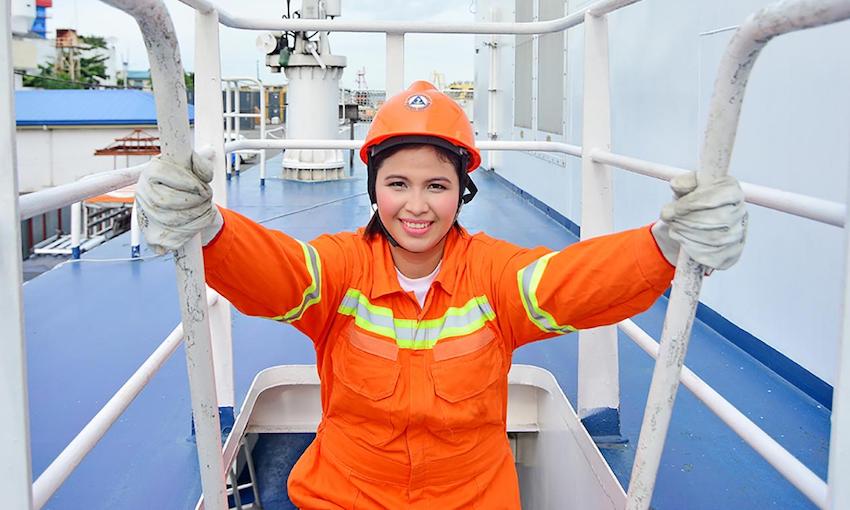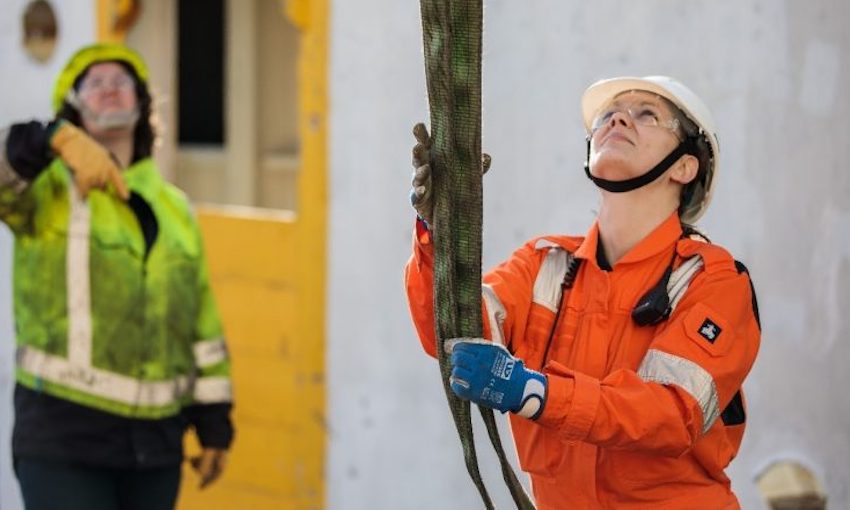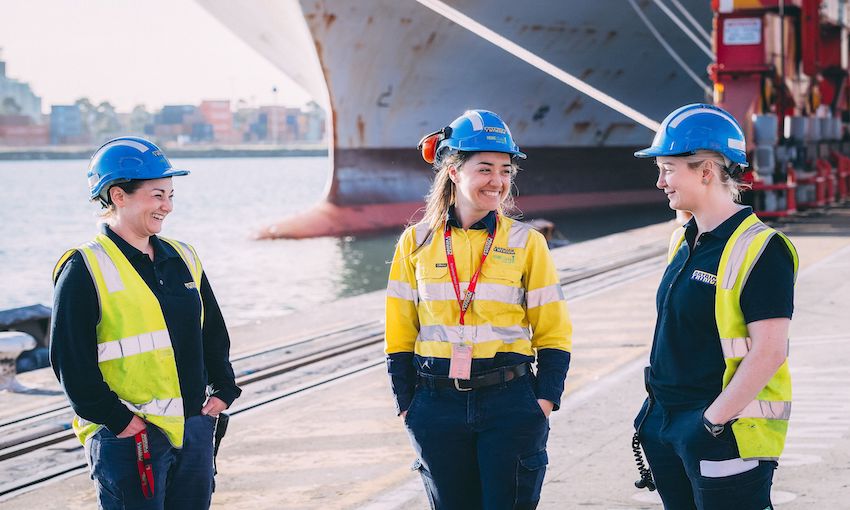A BREAKFAST marking International Women’s Day was held yesterday at NSW Parliament House, where supply chain leaders spoke about resilience, women in the industry, and also raised funds for the Women’s and Girls’ Emergency Centre (WAGEC) in Sydney.
At the event, organised by the Supply Chain and Logistics Association of Australia, three people gave keynote speeches, all focused around the idea of resilience.
Alison Cusack, of Cusack & Co, said: “How many more international women’s days to I have to go to make change, lasting change, effective change, move the needle a fraction, to make it feel worth it, to make the footsteps in front of each other?”
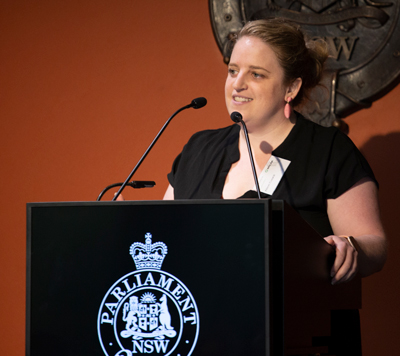
She spoke about the relationship between validation and action, validation of the experience of women in the industry, and how that can lead to action.
“Validating your experiences, and then having no plan feels tiring, having a plan without validating your experiences feels like we missed a step,” Ms Cusack said.
“We need to cope with now whilst aiming for the future, but we need to do both, we can’t do one without the other.”
She spoke about how everyone in the supply chain industry has had a particularly tough time over the past two years, but everyone kept the freight moving. “I’m sorry, am talking to a room full of essential workers?” she asked.
“The Prime Minister has come out and said, ‘you’re all essential’; you can’t get better than that in your industry.
“You all had a part to play, and that is competence and that is two years of visible competence; the entire world would have noticed if we had stopped working. So you did it, and there’s two years of proof in the pudding.”
And then Ms Cusack said she wanted to start a rebellion.
“It’s a rebellion of thought. It’s a rebellion of words, and it’s a rebellion of action. What we want to do is to challenge the status quo.
“Resilience on a personal level is about you being resilient within the system, and that puts all the onus on you to be resilient within the system, and it puts none of the burden on the system to change. It says you as an individual, if you want to survive, thrive and succeed, then you must be the toughest person. You must have a bottomless well of confidence, of energy, of connections, of networks to support you.”
Ms Cusack had a suggestion for how to start this rebellion, and it has to do with the belief that people are promoted on merit. She asked the audience if they knew of a man who had been promoted who has no clue what they’re doing in that role and nearly everyone raised their hands.
“Here is a bold concept: When someone is promoted over you, and it’s on merit, believe them. Don’t do the extra work for that manager. Don’t over explain for that manager. Say, ‘you got hired on merit, you know what you’re doing’. Believe them,” she said.
From the Ports
In NSW Ports CEO Marika Calfas’ keynote address, she spoke about resilience in the state’s port system.
She pointed to the past two years, with the disruptions from the pandemic, as an example of resilience the supply chain industry. She said that collaboration leads to resilience, and outlined a program of regular meetings between NSW Ports, industry and state government representatives that were held throughout the COVID period.
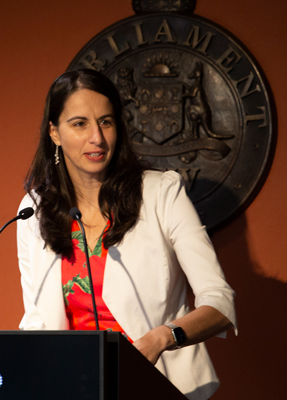
However, she said there is still work to do to ensure the system functions well into the future.
“To remain resilient in the longer term, industry and government must continue to work together to address domestic productivity, efficiency and resilience. These are things we can control. Our view of the priorities for port supply chain resilience are efficient port connections, technology improvement, national co-ordination and effective land-use policy,” she said.
Ms Calfas said there were four main areas of focus outside the port that are needed to increase resilience in the state’s supply chain.
“There needs to be continued investment in road and rail connectivity to the ports to improve pinch points,” she said.
“We need to adopt technology with a national single window, a trade community system to increase visibility throughout the supply chain to transact border clearances and manage freight data across multiple systems.
“We need effective land use policy to protect industrial land and key infrastructure from urban encroachment and to avoid curfews and operating restrictions, which result in inefficiencies and higher costs.
“And, we also have to reduce the impact of disruptions, be they weather, labour, or a lack of national co-ordination, as we saw during the COVID pandemic period. And all of these can only be achieved through collaboration but are needed to build resilience.”
Helping those in need
WAGEC CEO Helen Waters Silvia in her keynote address, discussed turning resilience into action, and the work her organisation does to help women and children.
“With the work that we do, it’s not just about the thinking, the critical thinking that goes behind it, it’s about the action we put in with the women we support,” she said.
Every night, can WAGEC accommodates 200 women and children, and the organisation helps to create safe spaces for women and children who have experienced homelessness and domestic violence.

